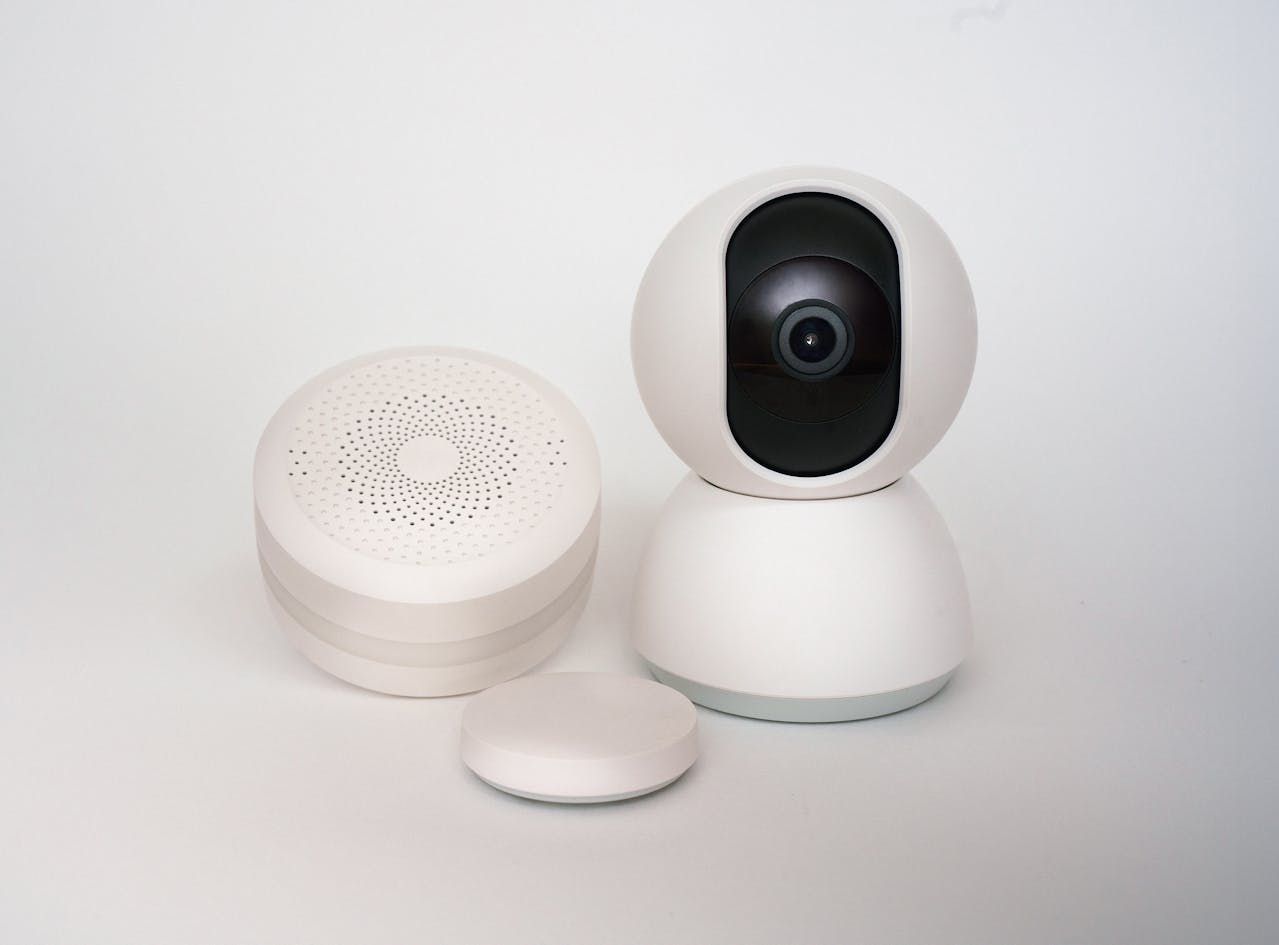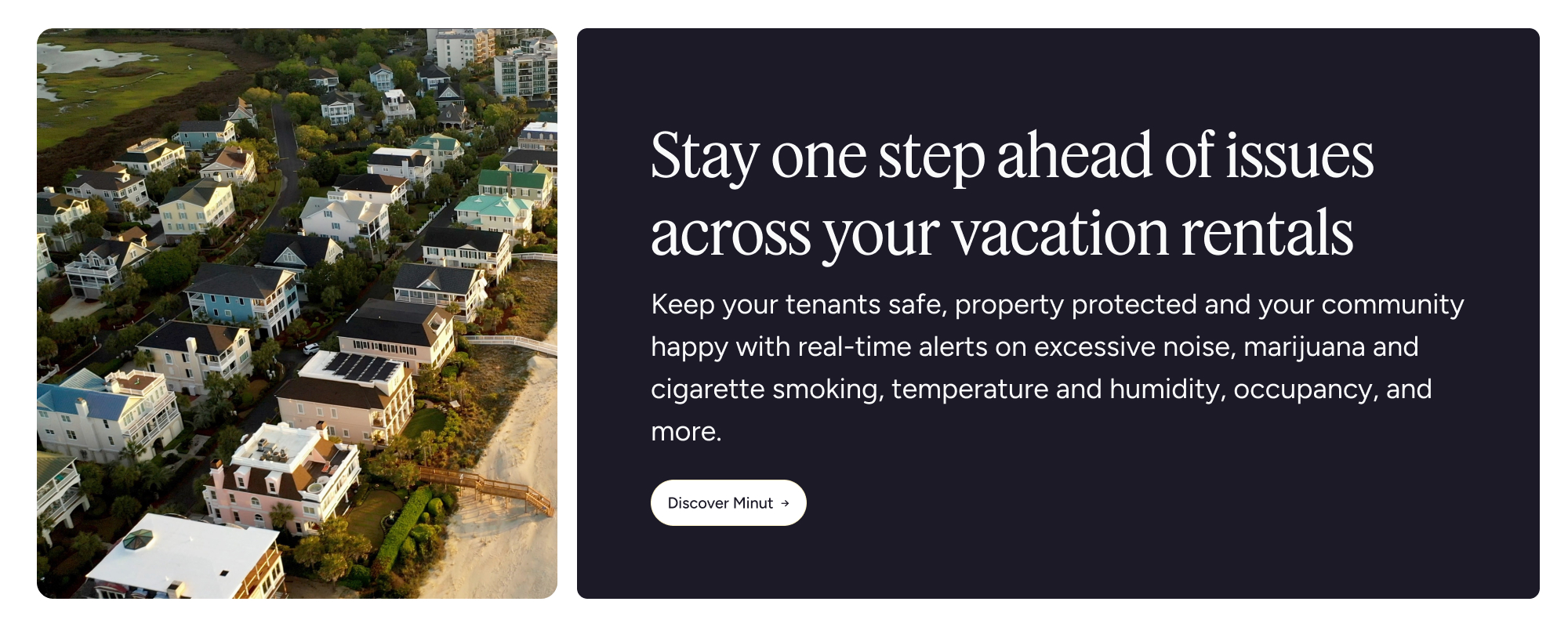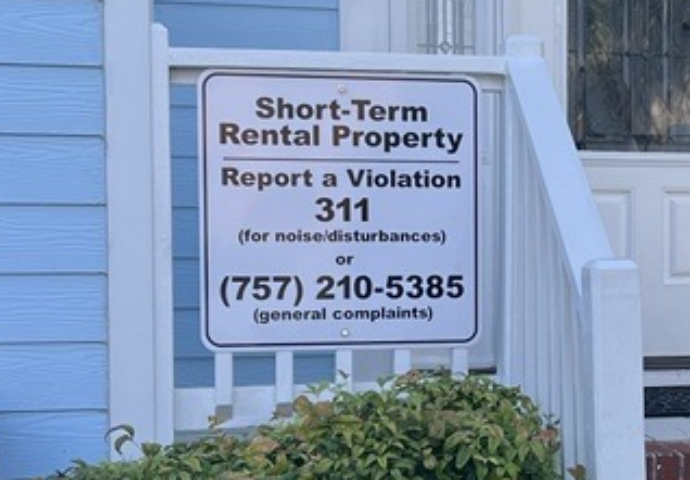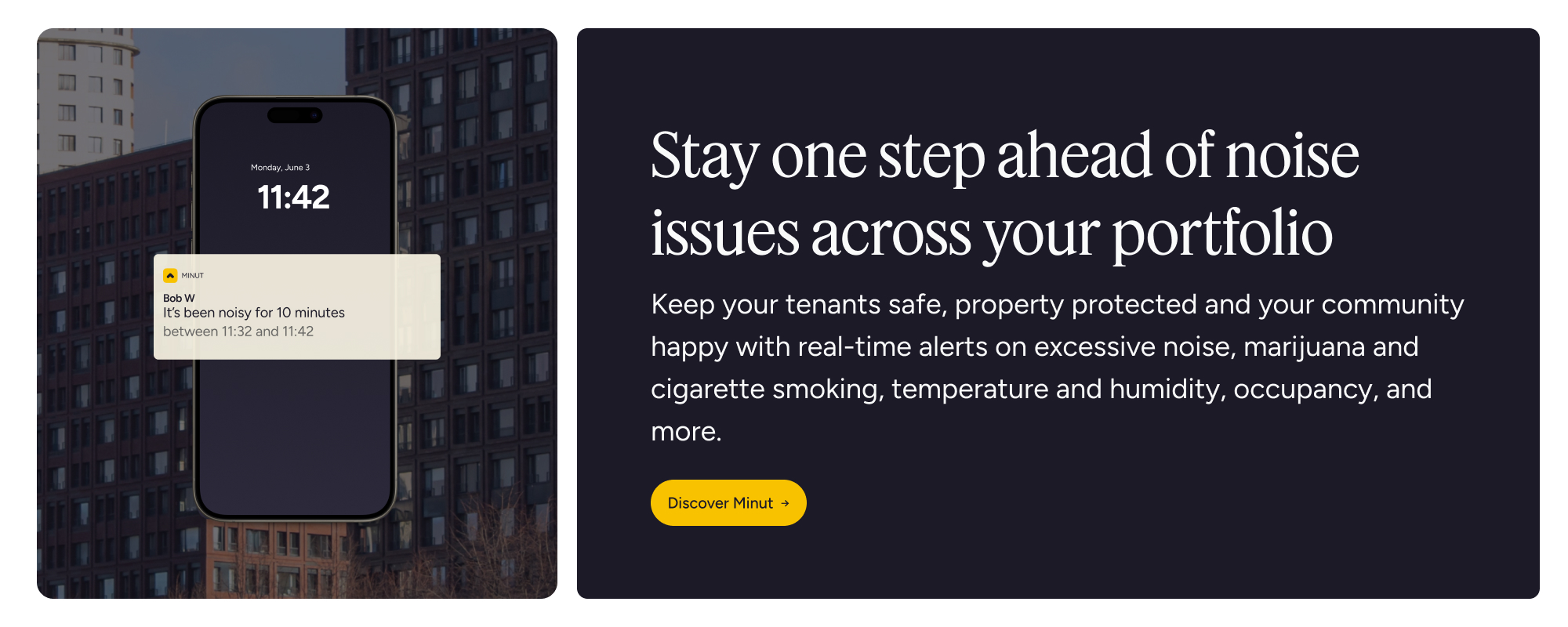


Short-term rentals (STRs) have grown into a core part of the global lodging market. But along the way, rules have inevitably followed. Cities, regions, and national governments are refining short-term rental regulations to protect housing, respond to neighborhood concerns, and ensure safe, transparent stays. For operators, property managers, and multifamily owners, this new era is not just about avoiding fines, but ensuring guest safety and building trust with guests, neighbors, and policymakers, while also running operations that scale.
This guide breaks down the rules you need to know, explains how and why they’re changing, and offers a checklist for staying compliant anywhere you operate. We also highlight how privacy-first technology supports responsible hosting without adding friction.
The short-term rental ecosystem matured quickly through platforms like Airbnb, Vrbo, and Booking.com. Now, a blend of short-, mid-, and extended-stay use cases spans everything from single-family homes to aparthotels, student accommodation, and multifamily communities.
Regulators are responding to housing affordability pressures, tourism impacts, and community complaints about nuisance and safety. The result is a rapid wave of city-by-city rules in the U.S., alongside national or regional frameworks in other countries, including parts of Europe, ranging from a cap on stays in some areas through to a planned outright ban on short-term rentals in other areas.
In other words, regulations are ubiquitous but inconsistent, often introduced in response to specific concerns of that location. This inconsistency can be confusing for operators, especially if entering a new market. While the specifics vary from one place to another, regulations are converging around clear themes:
These changes are reshaping day-to-day operations and risk management for hosts and managers across segments. In this environment, the operators who thrive are those who approach compliance as part of the guest experience and the brand promise.

Short-term rental regulations help the industry grow responsibly. They set clear standards for safety, quality, and accountability, giving guests confidence that their stay will be comfortable and secure. At the same time, they help communities manage tourism thoughtfully, ensuring that neighborhoods remain livable and welcoming for everyone.
Good regulation can strengthen opportunity as it builds trust between hosts, guests, and residents, creating a more consistent, reliable experience across destinations.
Rules are tightening in many major markets, but the way they tighten depends on where you operate.
In the European Union, a binding regulation on data collection and sharing standardizes core elements of short-term rental regulation across Member States. From May 2026, regulation (EU) 2024/1028 will require online platforms to transmit monthly activity data per listing to national single digital entry points, and hosts must provide accurate information on each rental accommodation. Hotels and hostels are out of scope and thus excluded from this requirement. In addition, individual countries within Europe have their own regulations for vacation rentals, including Barcelona’s plan to ban all holiday rentals for tourists by November 2028.
Canada has placed more responsibility on both hosts and platforms. British Columbia rolled out the Short-Term Rental Accommodation Act, with obligations for platforms to register, display license numbers, share data, and remove non-compliant listings. Short-term rentals are also limited to “the home where the host lives for a longer period of time in a year than any other place plus one secondary suite or accessory dwelling on the same property.”
The U.S. remains a patchwork of local rules, although state preemption and litigation can raise or lower the ceiling for what cities can do. New York City’s Local Law 18 made platform-verified registration the norm and eliminated a large share of illegal short-stay listings, while cities like San Francisco, Los Angeles, San Diego, and Chicago fine-tune long-standing frameworks. Dallas introduced a ban on STRs in single-family zone neighborhoods in 2023, but a court injunction has put it on hold, illustrating how fluid the legal picture can be.
What is the market backdrop? Demand remains resilient. In the EU, Eurostat recorded 678.6 million guest-nights booked through major platforms in 2023, with double-digit growth continuing into 2024. In the U.S., AirDNA reported a new record in July 2025, with a 3.9% year-over-year growth rate and 26.4 million nights stayed.
For operators, the lesson is clear: regulation is tightening, but demand is healthy. Compliance is the path to durable growth.
Short-term rental regulations tend to cluster around a few operational pillars. Understanding these will help you translate a new ordinance into clear actions.
Most comprehensive frameworks require a permit, or registration or license number. In many cities, platforms must verify these numbers and display them on listings, and delist units that fail to comply. This approach has strong legal footing in the U.S. For example, The Ninth Circuit upheld Santa Monica’s ordinance requiring platform cooperation, treating it as a regulation of transactions rather than speech. New York City’s aforementioned Local Law 18 put platform verification at the center of enforcement, and Boston’s settlement requires registration display and monthly data sharing.
The EU is moving in the same direction. In addition to the Regulation 2024/1028 mentioned above, various locations within Europe have their own regulations and restrictions. Madrid, for example, has a strict permit system requiring vacation rentals under 30 days to have a tourist licence, and Valencia and Seville only allow STRs with community approval. Parts of Germany need city-issued registration numbers, and Amsterdam requires an annually-renewed permit and a stipulation that the property must be the owner’s main residence. Major metros from New York and San Francisco to Paris and London also operate some form of registration or cap to align short-stay activity with local priorities.
Where permits are required, take a leaf out of the Virginia Beach rulebook by showcasing them on your booking website and on the premises, so they're clearly visible to potential guests. This will instill confidence in guests and showcase your professionalism:

The fastest-growing compliance features are those that protect community quality of life. Many cities require a local contact who can respond quickly to complaints from neighbors or inspectors. San Diego mandates a local contact who must respond within one hour, and publishes live license counts and compliance reports by tier. For whole-home tiers, quarterly reporting is also required. Scottsdale uses a “nuisance party” framework, requires neighbor notification, and mandates $500,000 liability coverage per property, with owner accountability for repeated incidents. These rules point toward prevention and rapid response as the norm.
Safety standard requirements typically include smoke and carbon monoxide detectors, fire extinguishers, clear egress, and appropriate insurance. Scottsdale’s policy highlights safety and liability by requiring proof of $500,000 coverage per property. In Australia, New South Wales maintains a statewide Code of Conduct with escalating sanctions for repeated breaches, while Victoria empowers owners’ corporations to ban short stays in their buildings if they pose safety or amenity concerns. In England, properties must have smoke alarms, as well as gas and electrical safety checks.
Hosts must ensure their properties meet fire safety standards, including smoke alarms and fire extinguishers. Gas and electrical safety checks are mandatory to also ensure energy efficiency with certifications required for appliances.
Many cities distinguish between hosted and unhosted stays, and tie eligibility to primary residence. New York City allows sub‑30‑day stays only when the host is on site with a maximum of two guests. San Francisco requires hosts to be permanent residents and caps unhosted nights annually. Los Angeles limits home-sharing to primary residences and requires recordkeeping, while allowing property owners to file proactive prohibitions. San Diego uses licensing tiers and caps whole-home licenses citywide, with a distinct framework for Mission Beach.
Short-term rentals are subject to lodging taxes and, in many cases, sales or value-added tax. Many jurisdictions now require platforms to collect and remit. Austin’s 2025 amendments call for platform cooperation, including license display, removal of unlicensed listings beginning July 1, 2026, and hotel occupancy tax collection by platforms. Victoria in Australia added a statewide 7.5% short-stay levy from January 1, 2025, with exemptions for principal places of residence and certain student accommodation, while leaving standard taxes in place. EU rules leave taxation to Member States, though the new data-sharing regulation will improve transparency.
The following table gives an overview of the regulations in different parts of the world:
Whether you run a single listing or a multi-market portfolio, the path to compliance follows the same logic. Use this seven-step model any time you open a new market or update your operations.
Data and automation are redefining how rules work in practice, and there are three shifts that matter most.
First, platforms and cities are moving toward structured data-sharing. The EU’s STR data regulation creates a common approach to host registration numbers and monthly activity data per listing through national digital entry points. In the U.S., case law and settlements have backed city requirements for platforms to verify registrations and remove illegal listings.
Second, enforcement is becoming faster and more targeted. New York City’s Local Law 18 produced a steep drop in illegal sub‑30‑day listings, while expanding the Prohibited Buildings List to tens of thousands of multifamily properties whose leases do not allow STRs. In Spain, officials ordered platforms to remove roughly 66,000 non-compliant listings, and Barcelona plans to phase out tourist flats by 2028 — these are moves that have been validated under national law. These tools shift focus to on-the-ground impacts rather than abstract cap-and-ban debates.
Third, privacy-first property tech bridges the gap between compliance and hospitality. Minut gives operators the tools to prevent violations without surveillance. In cities like San Diego and Scottsdale, where rapid response and neighbor notification are part of the rulebook, this operational layer can be the difference between a warning and a violation notice. Real-time insights across your entire property portfolio can give peace of mind, and ensure you stay compliant with local and state regulations on STR noise levels.

The best short-term rental regulations share three traits: they are fair, enforceable, and transparent, with a focus on both guest experience and community protection.
Fair rules protect housing and neighborhood stability without shutting out responsible hosts. Enforceable rules rely on verifiable data and platform cooperation so cities can act on facts and not guesswork. Transparent rules make obligations obvious to operators and guests alike.
We would encourage policymakers to anchor frameworks in outcomes rather than blanket bans. Noise and safety standards, rapid-response obligations, and clear primary residence definitions are easier to enforce at scale and are better aligned with community goals.
We would also welcome more consistency in regulations across different locations. The current patchwork approach can be confusing and make it difficult to stay informed. Some deviation is to be expected, as short-term rental rules largely emerge in response to local feedback, but regulators should aim for more similarity than differences.
Where possible, technology should be encouraged or mandated. Similar to the requirement for smoke alarms and carbon monoxide detectors, sensors such as Minut’s can protect against:
All of this is possible without the use of cameras or audio recording, so there is no compromising on privacy.
Collaboration is key. When hosts, platforms, property tech, and regulators share the same data and goals, compliance becomes routine and communities benefit. At Minut, we believe great hosting starts with respecting guests, neighbors, and the community. Technology should make that respect visible and verifiable, while safeguarding privacy in every stay.
We also urge operators to do what is right for their guests and community, and not only what the law currently requires. Not only will this make them better hosts and neighbors, it also puts them in a stronger position when additional regulations arrive.
Looking ahead, we can expect three big developments.
For operators, the playbook stays the same: validate eligibility, register correctly, keep safety and rapid-response workflows tight, monitor respectfully, and document everything.
By following these principles, you will not only be well placed should additional regulations take effect in the future, but you will also be showcasing a commitment to guest safety and community relationships.
